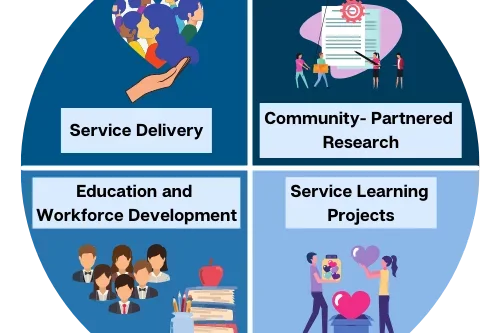About
Goals of Community Engagement
Three primary goals for community engagement
- Partnering with the community to improve health through solutions that address social, cultural and biological determinants
- Developing a comprehensive and diverse health care workforce to serve the community
- Creating innovative health care delivery models that maintain financial stability while serving all members of our community

Guidelines to Conducting Community Engagement
Resources
Community Resource Guide (PDF)
Please check out these Principles of Community Engagement, employed to guide interactions between UCLA and the community, or the goals of community engagement, as outlined by the David Geffen School of Medicine and UCLA Health.
Getting Started
These resources are provided for faculty & staff to help guide community-engaged research. Use these to learn more about how to get started.
- NIH Community Engagement in Research: Frameworks for Education and Peer Review
- UCLA CTSI Tools and References for Researchers
- UCLA CTSI Integrating Special Population Program
Funding/Grant Writing
Use these links for resources on how to fund your community-engaged research project as well as helpful tips for grant writing.
Connect with Us
For more information, questions or comments, please contact us at the email or address below.